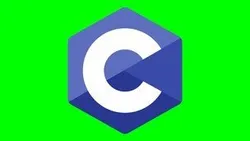
Script Writing: Write a Pilot Episode for a TV or Web Series (Project-Centered Course) 
In this project-centered course, students will learn the fundamentals of script writing by creating a pilot episode for a TV or web series. Through lectures, readings, and hands-on activities, students will gain an understanding of the structure and format of a script, as well as the techniques used to create compelling characters and storylines. By the end of the course, students will have a completed pilot episode ready to submit to agents and producers. ▼
ADVERTISEMENT
Course Feature
![]() Cost:
Cost:
Free
![]() Provider:
Provider:
Coursera
![]() Certificate:
Certificate:
Paid Certification
![]() Language:
Language:
English
![]() Start Date:
Start Date:
1st May, 2023
Course Overview
❗The content presented here is sourced directly from Coursera platform. For comprehensive course details, including enrollment information, simply click on the 'Go to class' link on our website.
Updated in [March 20th, 2023]
This project-centered course is designed to help learners write a complete pilot episode for their own unique television or web series. Learners will learn to break down the creative process into components and discover a structured process that allows them to produce a polished and pitch-ready script in just a few weeks. Through lectures, activities, and peer feedback, learners will gain confidence in their ideas and abilities and feel prepared to pitch their first script and get started on their next.
The course curriculum is simple: learners will write, revise their work, and share feedback with their peers. The lectures are short and to the point, designed in a step-by-step process essential to success as a script writer. Learners will learn by doing and will be encouraged to tap into their creativity.
To get started, learners will need any basic word processor. During week two, learners can choose to download free scriptwriting software such as Celtx or Trelby or purchase Final Draft, or continue to use their word processor and do their own script formatting.
The course is estimated to take 1-2 hours of study and 30+ hours of active project work. Upon completion, learners will have a finished project that they can be proud to use and share.
Coursera's privacy policy protects the learner's IP and learners are the sole owners of their work.
[Applications]
Those who complete the Script Writing: Write a Pilot Episode for a TV or Web Series (Project-Centered Course) will have the confidence and skills to create a polished and pitch-ready script in just a few weeks. Learners will be able to apply the knowledge gained from the course to create their own unique television or web series, be it drama or comedy or something in between. The course is designed to tap into the learner's creativity and is based in "Active Learning". The course curriculum is simple: learners will write, revise their work, and share feedback with their peers. Upon completion of the course, learners will have a finished project that they can be proud to use and share.
[Career Paths]
The three to four career paths recommended to learners of this course are:
1. Script Writer: Script writers are responsible for creating the dialogue and story for television shows, movies, and other forms of media. They must be able to craft compelling stories and characters that will engage viewers. Script writers must also be able to work with directors, producers, and other members of the production team to ensure that the script is properly executed. The demand for script writers is increasing as streaming services and other digital media platforms continue to grow.
2. Story Editor: Story editors are responsible for developing and refining scripts for television shows, movies, and other forms of media. They must be able to identify potential plot holes and inconsistencies in the story and suggest changes to the script that will improve the overall quality of the story. Story editors must also be able to work with writers, directors, and producers to ensure that the script is properly executed. The demand for story editors is increasing as streaming services and other digital media platforms continue to grow.
3. Script Supervisor: Script supervisors are responsible for ensuring that the script is properly executed during production. They must be able to keep track of changes to the script and ensure that the actors are delivering their lines correctly. Script supervisors must also be able to work with directors, producers, and other members of the production team to ensure that the script is properly executed. The demand for script supervisors is increasing as streaming services and other digital media platforms continue to grow.
4. Script Consultant: Script consultants are responsible for providing feedback and advice to writers, directors, and producers on how to improve the quality of their scripts. They must be able to identify potential plot holes and inconsistencies in the story and suggest changes to the script that will improve the overall quality of the story. Script consultants must also be able to work with writers, directors, and producers to ensure that the script is properly executed. The demand for script consultants is increasing as streaming services and other digital media platforms continue to grow.
[Education Paths]
Recommended degree paths:
1. Bachelor of Arts in Creative Writing: This degree program focuses on the development of creative writing skills and provides students with the opportunity to explore a variety of genres, including fiction, poetry, and non-fiction. Students will learn how to craft compelling stories, develop characters, and create compelling dialogue. This degree program also provides students with the opportunity to develop their writing skills in a variety of contexts, such as screenwriting, playwriting, and journalism. The developing trend in this degree path is the increasing focus on digital media and the use of technology to create and share stories.
2. Bachelor of Arts in Film and Television: This degree program focuses on the production of film and television, including scriptwriting, directing, cinematography, and editing. Students will learn the fundamentals of filmmaking, including story structure, character development, and visual storytelling. This degree program also provides students with the opportunity to develop their skills in a variety of contexts, such as documentary filmmaking, animation, and web series. The developing trend in this degree path is the increasing focus on digital media and the use of technology to create and share stories.
3. Master of Fine Arts in Screenwriting: This degree program focuses on the development of screenwriting skills and provides students with the opportunity to explore a variety of genres, including drama, comedy, and horror. Students will learn how to craft compelling stories, develop characters, and create compelling dialogue. This degree program also provides students with the opportunity to develop their writing skills in a variety of contexts, such as feature films, television, and web series. The developing trend in this degree path is the increasing focus on digital media and the use of technology to create and share stories.
4. Master of Arts in Media Studies: This degree program focuses on the study of media, including film, television, and digital media. Students will learn the fundamentals of media production, including story structure, character development, and visual storytelling. This degree program also provides students with the opportunity to develop their skills in a variety of contexts, such as documentary filmmaking, animation, and web series. The developing trend in this degree path is the increasing focus on digital media and the use of technology to create and share stories.
Course Syllabus
Develop your TV series concept
In Module 1 you will: 1. create a brief outline of your pilot episode, 2. revise your outline following peer review, 3. create a bible for the series: that is, you will develop your original idea for a series into a document that defines the concept, the major characters and brief descriptions of the episodes for season one.Write Act One of your pilot episode
In Module 2 you will complete the 1st act of your episode (or the 1st installment of your Web Series) You will: 1. create a brief outline of your pilot episode. 2. revise your episode outline following peer review, 3. create a detailed outline of your first act, 4. revise your Act One outline following peer review, 5. write your first act in screenplay format, 6. revise your Act One script after peer review.Write Act Two
In this module you will complete the second act of your episode (or the 2nd installment of your Web Series).Act Three
Polish your script, create a Cold Open and finish the Season One Bible
You will: 1. write a detailed outline of the second act, 2. revise your outline following peer review, 3. write the second act in screenplay format, 4. revise your second act following peer review.Pros & Cons

Provides minimal teaching.

Mentor is patient and helpful.

Helps with novel writing.

Poor content and guidance.

No real instruction provided.

Rapid pace causes drop-offs.
Course Provider

Provider Coursera's Stats at AZClass
Discussion and Reviews
0.0 (Based on 0 reviews)
Explore Similar Online Courses

C - Fast Crash Course - Introduction

Computing in Python I: Fundamentals and Procedural Programming

Python for Informatics: Exploring Information

Social Network Analysis

Introduction to Systematic Review and Meta-Analysis

The Analytics Edge

DCO042 - Python For Informatics

Causal Diagrams: Draw Your Assumptions Before Your Conclusions

Whole genome sequencing of bacterial genomes - tools and applications

James Cameron Teaches Filmmaking

Make A Short Film Documentary


Start your review of Script Writing: Write a Pilot Episode for a TV or Web Series (Project-Centered Course)